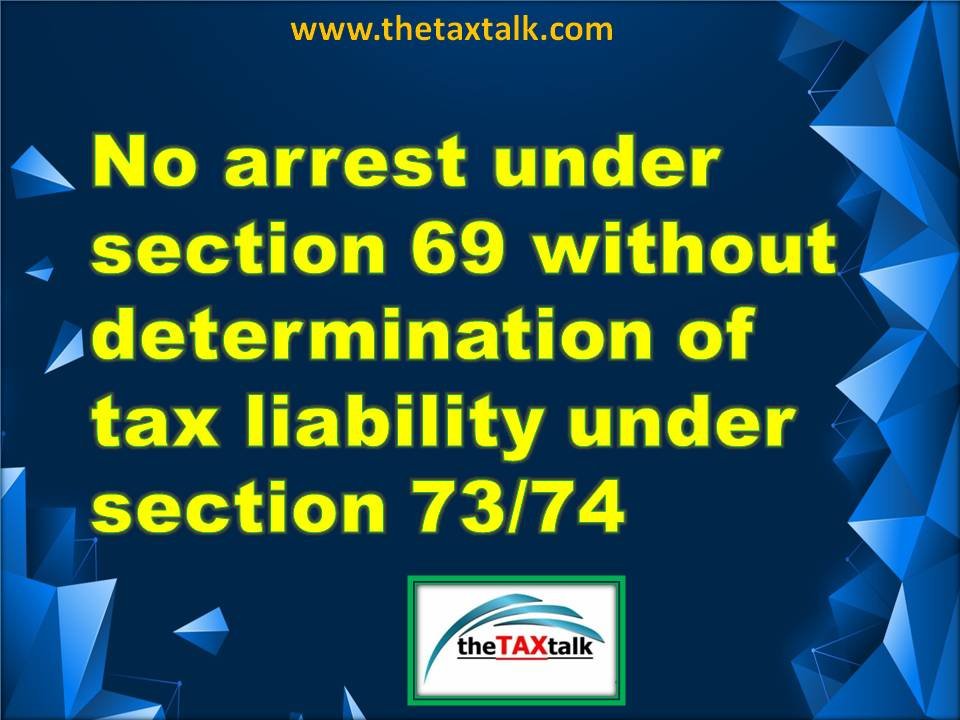![]()
No arrest under section 69 without determination of tax liability under section 73/74
There was an interesting case on the power of arrest before Punjab & Haryana HC as under:
“Vishal Chauhan vs Haryana State GST [CRM-M-37860-2024 dt.14 August 2024]”
In this case, the petitioner was in custody since February 20, 2024. He had no criminal antecedents and had a permanent abode, reducing the likelihood of fleeing the country. He was also ready to surrender his passport. The Show Cause Notice (SCN) issued under Section 74(1) of the CGST Act was yet to be adjudicated, and the exact liability of the petitioner was yet to be determined.
The primary issue in this case was whether the arrest of Vishal Chauhan under Section 69 of the CGST Act was valid without a prior determination of tax liability under Sections 73 or 74 of the GST Act. The case questioned the legality of arresting a taxpayer based solely on suspicion of tax evasion and wrongful Input Tax Credit (ITC) claims without a formal assessment of the alleged tax evasion.
The defense argued that the sentence and prosecution were directly linked to the quantum of tax evasion. Without a determination of tax evasion, there could be no criminal liability. M/s Tata Steels Ltd. was also issued a notice under Section 74(1) of the CGST Act jointly with the petitioner, which could potentially reduce the petitioner’s liability.
With above factual background, the Punjab and Haryana High Court ruled in favor of Vishal Chauhan, stating as under:
- Arrests under Section69 Cannot be made without a prior tax determination under Sections 73 or 74.
- DueProcess requires the necessity of following due process in GST enforcement.
- Invalid Arrest as the arrests based solely on suspicion without assessing the actual tax evaded are invalid.
4. With regard to Bail, the petitioner was allowed to be released on regular bail, subject to executing personal bonds with two solvent sureties of Rs. 50 Lakhs each. He was required to surrender his passport and not leave the country during the trial without prior court permission.
Conclusion:
The ruling reinforces that the adjudication of tax liability must precede criminal actions under GST regulations. It rightly highlights the importance of protecting taxpayers’ rights against arbitrary arrests and ensuring fairness in GST enforcement.
The copy of the order is as under:


